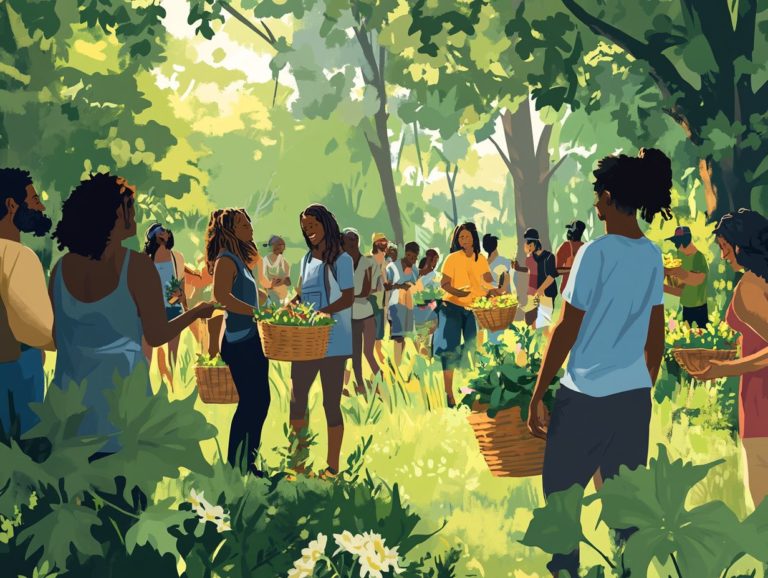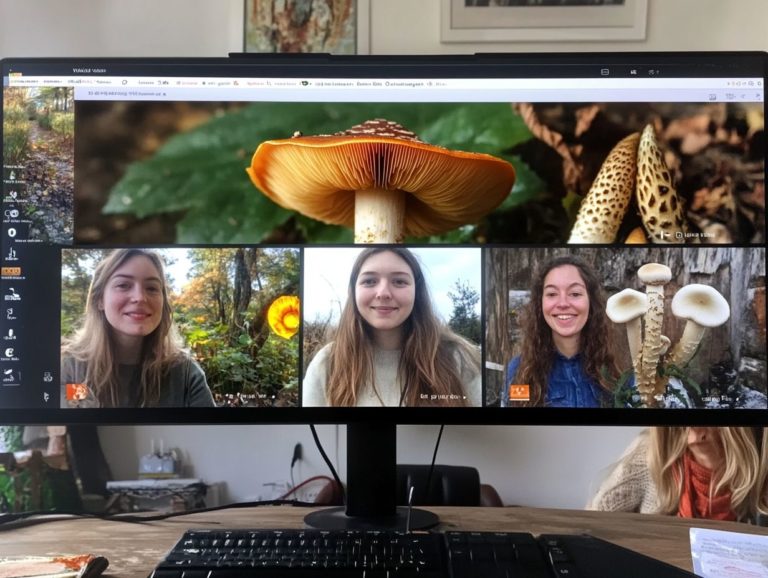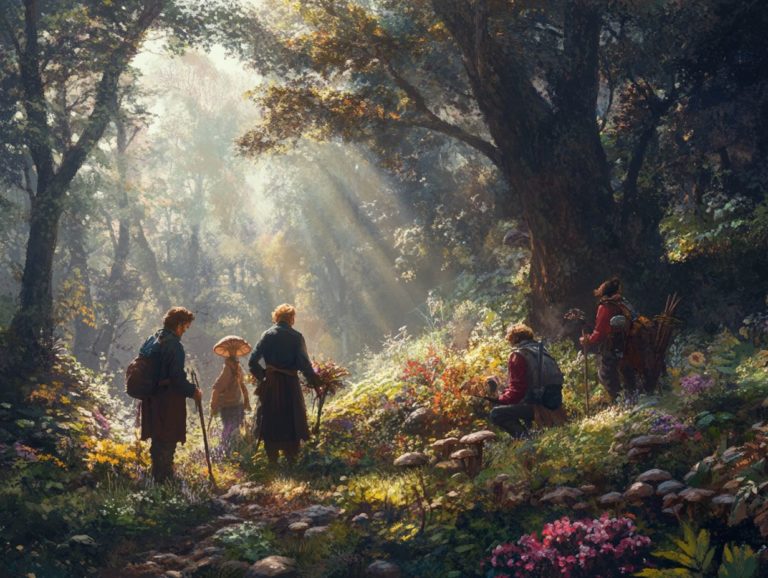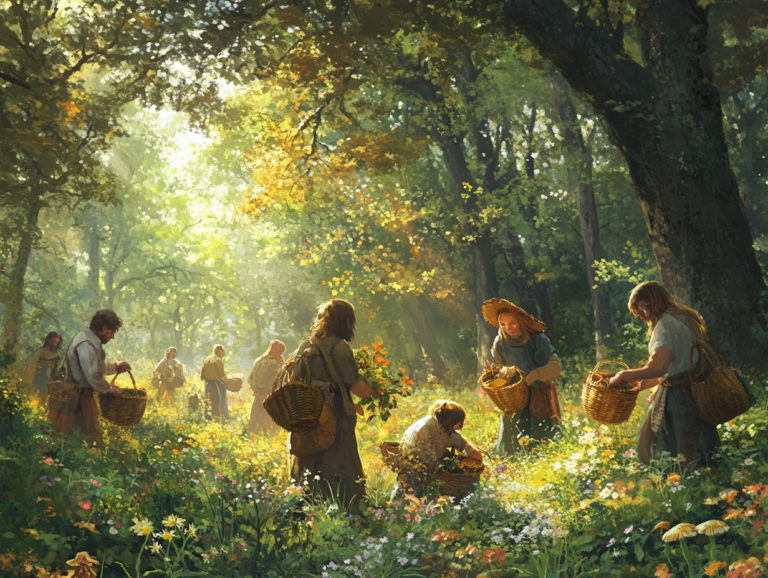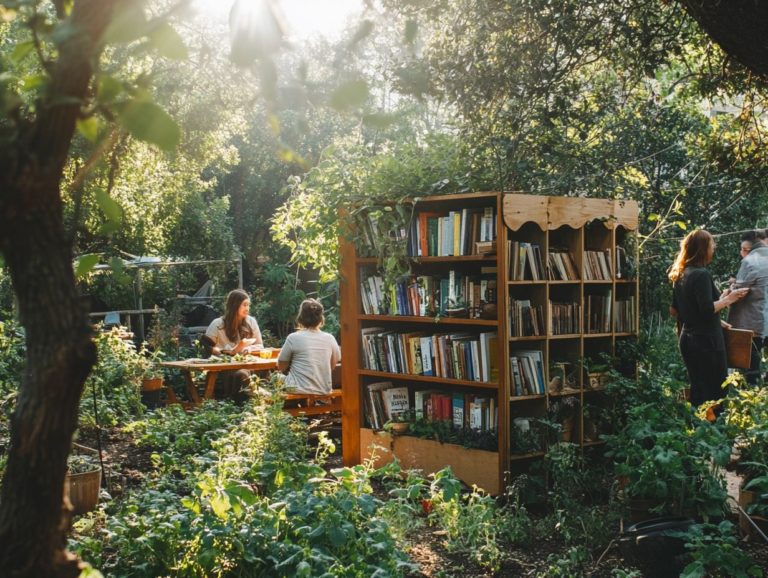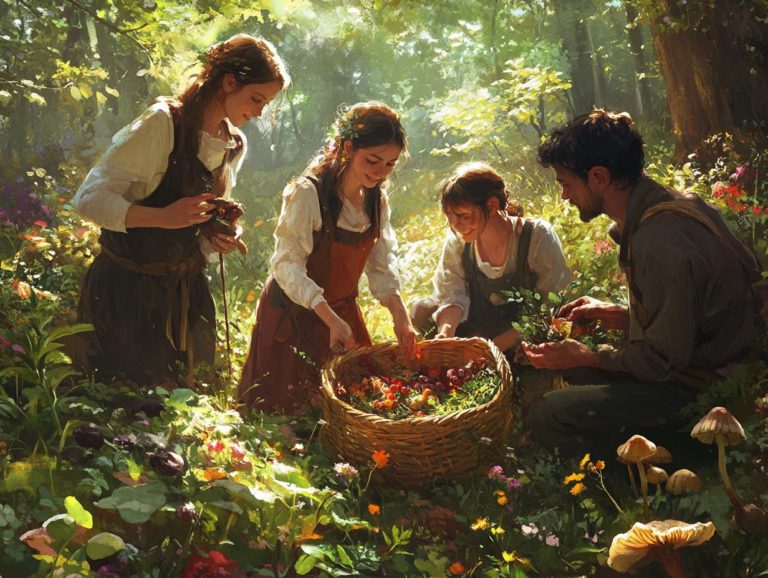Building Relationships with Local Foraging Experts
Foraging locally transcends being merely an enjoyable outdoor pastime; it opens the door to sustainability. It fosters community connections and promotes environmental stewardship.
This piece explores the many benefits of foraging, highlighting its positive effects on the environment and the crucial role local experts play in deepening your understanding of native flora.
Whether you consider yourself a seasoned forager or simply have a budding curiosity about the practice, you ll discover valuable tips for cultivating relationships with foraging experts, collaborating towards a greener future, and supporting this vibrant community.
Embark on this enlightening journey into the captivating world of local foraging.
Contents
- Key Takeaways:
- The Benefits of Foraging Locally
- Getting to Know Local Foraging Experts
- Building Relationships with Local Foraging Experts
- Collaborating with Local Foraging Experts
- Supporting the Local Foraging Community
- Frequently Asked Questions
- What is the importance of building relationships with local foraging experts?
- How can I start building relationships with local foraging experts, such as herbalists and wild plant enthusiasts?
- What are some benefits of building relationships with local foraging experts and participating in community health initiatives?
- How can I show my appreciation to local foraging experts and support their work in promoting wild foods?
- What should I know when connecting with local foraging experts, especially regarding ecological health and plants that don’t belong in the area?
- What if I can’t find any local foraging experts in my area, such as those in Riggins, Idaho or Portland, Oregon?
Key Takeaways:
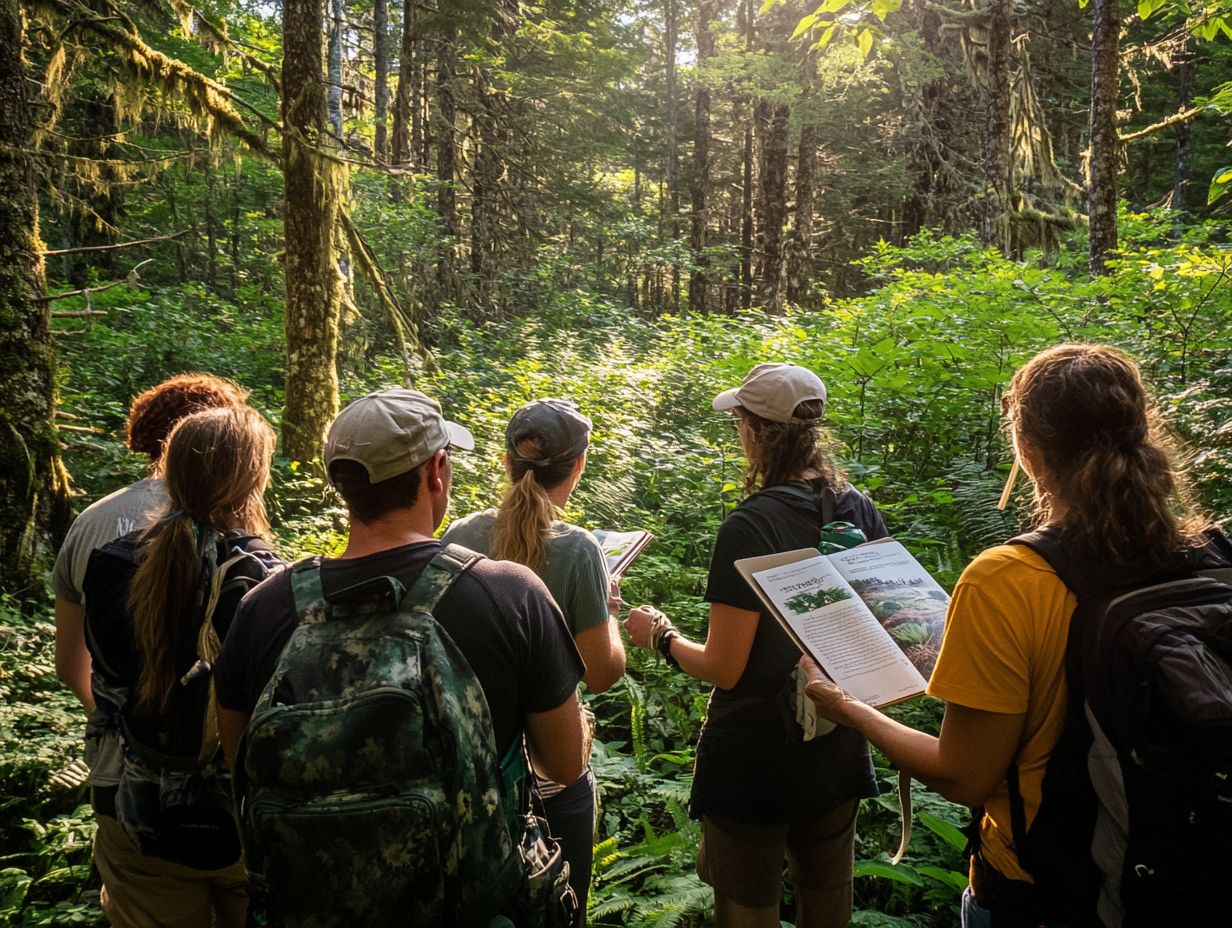
- Learn about the benefits of foraging locally, such as reducing environmental impact and promoting sustainability.
- Connect with local foraging experts to build relationships and collaborate on sustainable practices.
- Support the local foraging community give back and show your appreciation!
The Benefits of Foraging Locally
Foraging locally offers a wealth of benefits, seamlessly blending sustainable practices with community health and healthy ecosystems. It allows you to connect with your environment as you discover wild plants.
Urban foraging is a fun way to reconnect with nature and tackle nature deficit disorder. It promotes the identification and use of wild plants while reducing reliance on invasive species.
Foraging deepens your understanding of the ecological health of regions like Riggins, Idaho, and Portland, Oregon, nurturing a holistic approach to community well-being.
Environmental Impact and Sustainability
Sustainable foraging is essential for maintaining ecological health, as it encourages the responsible harvesting of wild plants while curbing the spread of invasive species.
When you approach foraging mindfully regarding the quantity and location of your harvest, you play a vital role in protecting native plant populations from depletion. This thoughtful practice not only supports biodiversity but also strengthens the resilience of local ecosystems against environmental challenges.
By adhering to responsible foraging guidelines like taking only what you need and avoiding disturbance to habitats you can significantly reduce negative impacts on the environment. Foraging offers a unique opportunity to reconnect with nature, allowing you to appreciate the delicate balance within local ecosystems and fostering a deeper respect for native flora and their crucial roles in maintaining ecological stability.
Getting to Know Local Foraging Experts
Connecting with local foraging experts can truly elevate your foraging experience, offering invaluable insights into the realm of wild plants, herbalism, and connecting with local chefs for foraging ideas and the cultural traditions intertwined with them.
Experts such as Lisa M. Rose and John Kallas, celebrated for their herbalism courses, play a crucial role in educating communities about the many benefits of foraging and its contribution to overall community well-being.
By engaging with these professionals, you can master plant identification techniques and sustainable practices specifically designed for the unique flora found in regions like the Pacific Northwest, significantly enriching your foraging journey.
Discover the Incredible World of Local Herbalists
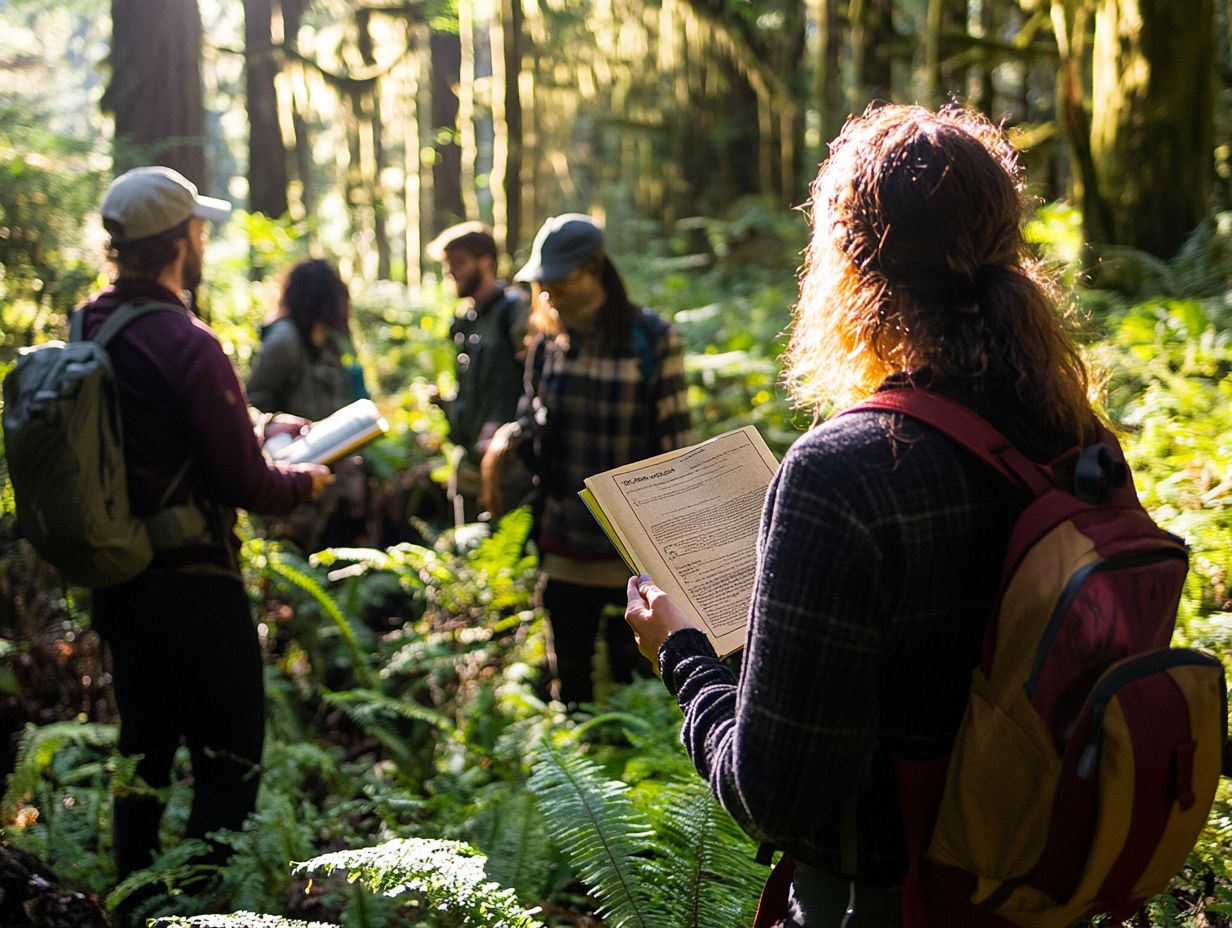
Local herbalists are invaluable resources for anyone interested in foraging. They offer a wealth of knowledge and insights on wild plants and their roles in enhancing community health.
These skilled individuals range from trained herbalists and ethnobotanists to passionate hobbyists with extensive local expertise. Their knowledge encompasses not just plant identification but also an understanding of the intricate ecological relationships that these herbs maintain with their surroundings.
You can connect with these herbalists through local workshops, community events, or online forums where they share their experiences and provide guidance. Richard Louv highlights the importance of fostering a connection with nature, and foraging serves as an ideal gateway for you to deepen your appreciation for the environment while acquiring practical skills!
Embarking on this journey can lead to a more sustainable lifestyle and enhanced well-being.
Building Relationships with Local Foraging Experts
Building strong relationships with local foraging experts is essential for fostering trust and teamwork. This greatly enhances your foraging experiences and helps in finding local foraging mentors while contributing to the overall health of your community.
By establishing open lines of communication and expressing genuine interest in their expertise, you can unlock valuable mentorship and guidance on your foraging journey.
Following foraging guidelines keeps your interactions respectful and sustainable. This sets the stage for enduring connections that benefit both you and the local herbalists.
Tips for Establishing Trust and Collaboration
Establishing trust and collaboration with local herbalists and foraging experts requires your consistent engagement, a deep respect for their knowledge, and an appreciation for the principles of sustainable foraging, which can be enhanced by finding local foraging guides.
Building on this foundation means actively participating in local foraging workshops or events, where you can observe their techniques firsthand. Additionally, connecting with other foragers will deepen mutual respect.
By actively listening to their insights, you not only honor their expertise but also create opportunities for knowledge sharing. Asking thoughtful questions and involving them in community projects fosters a collaborative atmosphere.
This approach enhances collaboration and contributes to community health while promoting sustainable practices. When foraging experts feel valued and understood, they re far more likely to enter into partnerships that benefit both the environment and the community.
Collaborating with Local Foraging Experts
By collaborating with local foraging experts, you have the opportunity to lead new community health projects. These initiatives not only promote sustainable foraging practices but also enhance the ecological health of the environments around you.
Working Together for a Sustainable Future
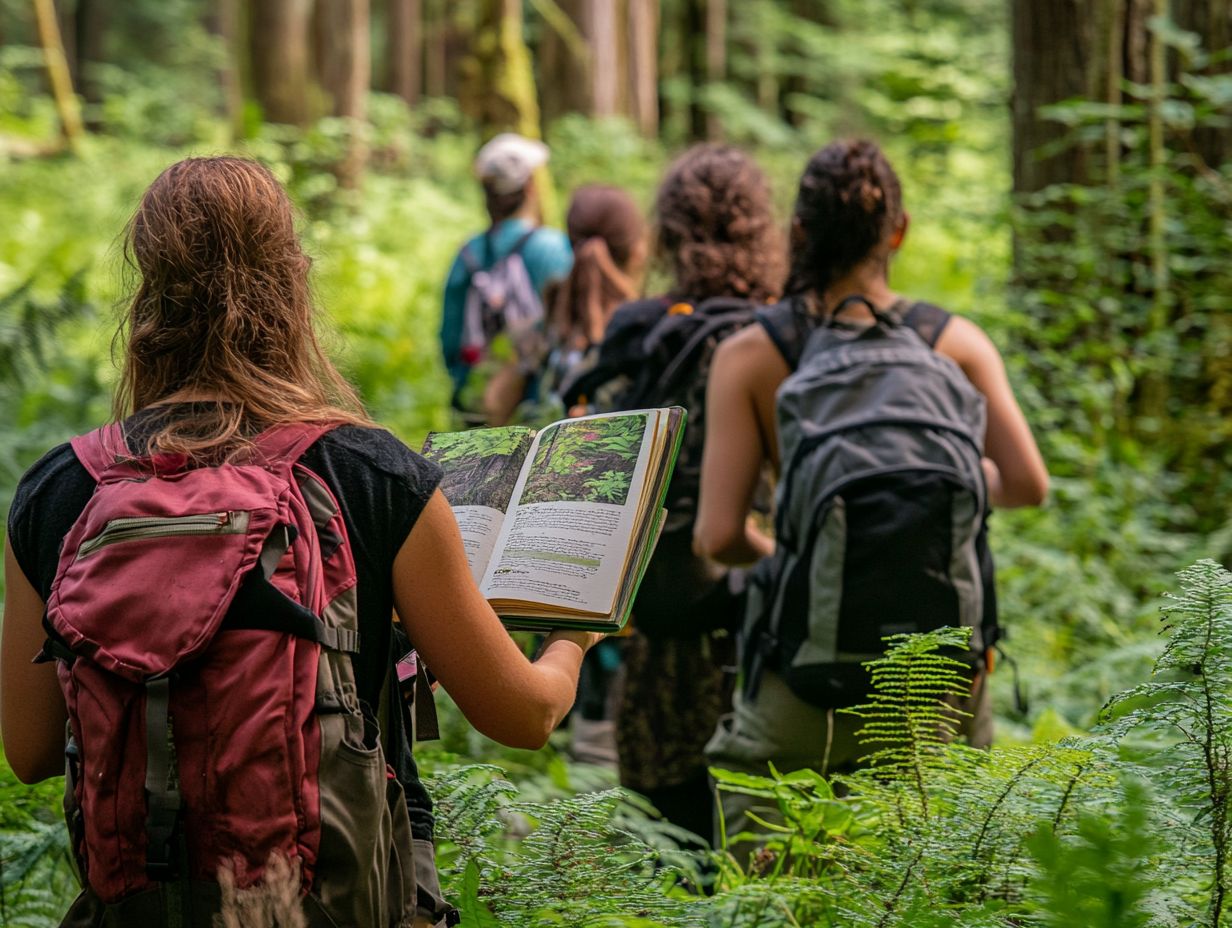
Collaborating with local herbalists can pave the way for sustainable foraging initiatives that enrich both the community and local food systems.
By fostering these partnerships, you can actively participate in community gardening projects. Here, you not only learn to cultivate your own food but also discover how to identify and harvest wild edibles.
Foraging classes led by knowledgeable herbalists will deepen your appreciation for local flora. This enables you to explore the nutritional and medicinal benefits of the plants right in your backyard.
Implementing awareness campaigns about local edible plants can empower the public to incorporate these valuable resources into their diets. This promotes both food sovereignty and ecological stewardship.
These collective efforts can significantly enhance community resilience and bolster sustainable local food networks, creating a harmonious balance between people and nature.
Supporting the Local Foraging Community
Supporting the local foraging community is essential for cultivating a deeper appreciation of nature. By doing so, you not only contribute to the health of your community but also elevate environmental awareness.
This creates a harmonious relationship between people and the land.
Ways to Give Back and Show Appreciation
You can give back to the local foraging community in many ways. Participate in events or share your insights and experiences.
One effective approach is to volunteer for local workshops. You can gain knowledge while teaching new foragers alongside seasoned foragers. Engaging in foraging clean-up events helps directly sustain local ecosystems, ensuring these cherished foraging areas remain vibrant and accessible for future generations.
Encouraging eco-friendly foraging habits within your social circles and online can help cultivate a deeper appreciation for the environment. This, in turn, encourages responsible behaviors that benefit the entire community. Building connections with fellow foragers creates a supportive network, allowing everyone to thrive and share their passion for foraging.
Frequently Asked Questions
What is the importance of building relationships with local foraging experts?
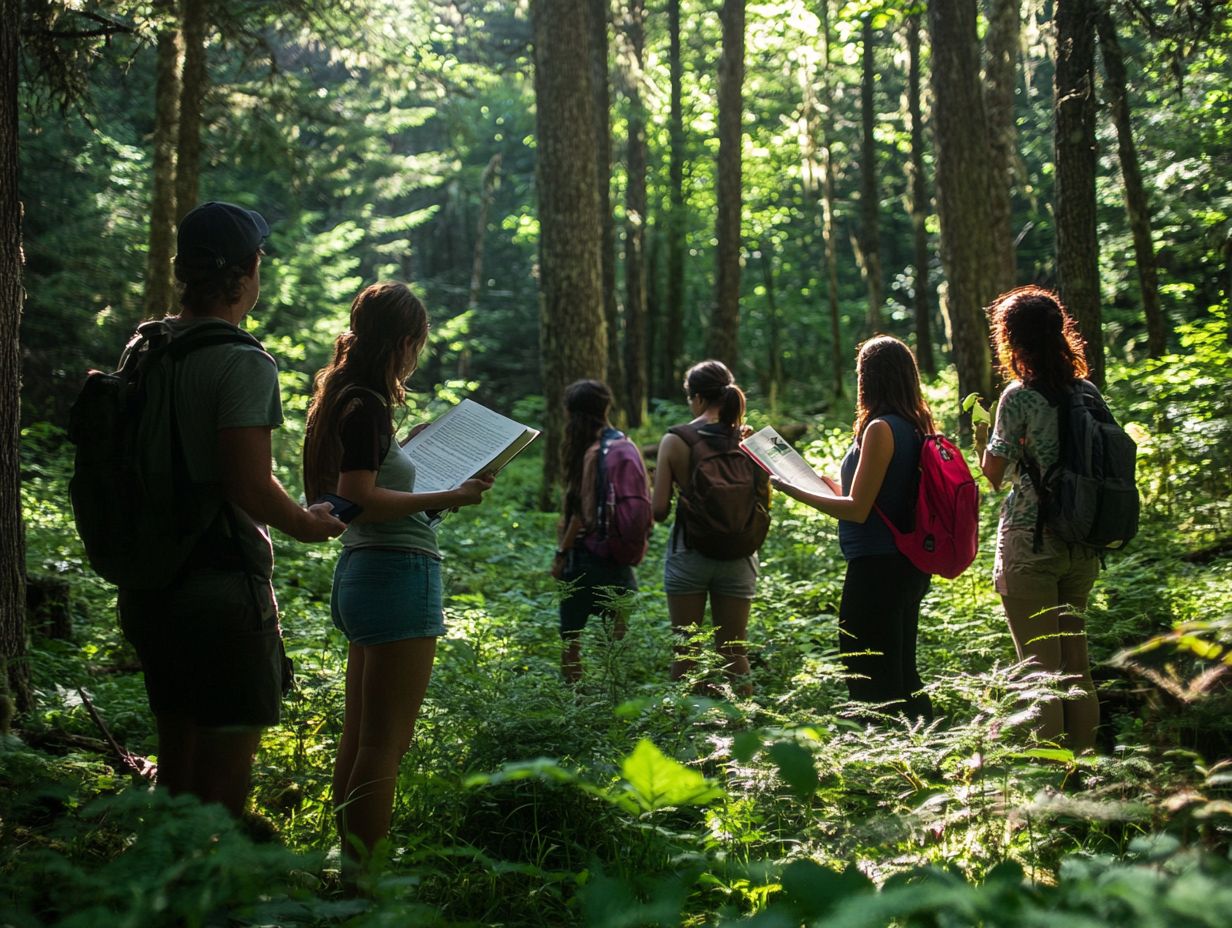
Building relationships with local foraging experts is important because it helps you gain valuable knowledge and skills about foraging in your area. Connecting with local foraging groups allows you to tap into their years of experience and learn about the best foraging spots, safe plants to eat, and how to properly identify and harvest them.
How can I start building relationships with local foraging experts, such as herbalists and wild plant enthusiasts?
First, research and find foraging experts in your area. Use online forums, local foraging groups, or ask friends and family for recommendations. After identifying experts, reach out and express your interest in learning from them. Consider connecting with foragers in urban areas to broaden your network. Offer to help on their foraging trips or exchange knowledge and resources.
What are some benefits of building relationships with local foraging experts and participating in community health initiatives?
Building relationships with local foraging experts can lead to new friendships and connections. Additionally, connecting with Indigenous foraging practices promotes sustainable foraging methods and supports local businesses and initiatives.
How can I show my appreciation to local foraging experts and support their work in promoting wild foods?
Show your appreciation by helping local foraging experts on their trips, sharing your own knowledge, or simply expressing gratitude for their time. You can also support them by purchasing their foraged goods or recommending them to others.
What should I know when connecting with local foraging experts, especially regarding ecological health and plants that don’t belong in the area?
Always respect the wisdom of local foraging experts! Their knowledge is invaluable, especially regarding the importance of local foraging networks. Always ask for permission before joining them on foraging trips. Follow sustainable foraging practices and only take what you need for personal use.
What if I can’t find any local foraging experts in my area, such as those in Riggins, Idaho or Portland, Oregon?
If you can’t find local foraging experts, reach out to experts in neighboring communities or attend workshops or classes on foraging. You can also learn from reliable online sources or books. Always practice caution and proper identification when foraging on your own.

